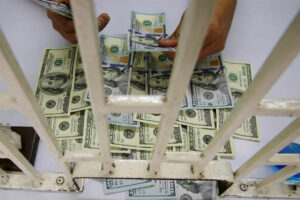Seventeen years after its launch amid the global financial crisis, the Lewes Pound, the UK’s last surviving local currency, has ceased circulation.
First issued in 2008 in the East Sussex town of Lewes, the currency became a symbol of independence and community resilience, created to support small businesses and keep money circulating locally. But the steady rise of cards and digital payments has finally brought the experiment to an end.
The Lewes Pound was launched just as Lehman Brothers, capturing the imagination of the press and public. Organisers had hoped for 100 buyers and 25 participating businesses; instead, 400 people bought the first run of 10,000 notes, and 75 shops signed up. The quirky notes — including a £21 denomination — featured figures such as radical philosopher Thomas Paine, who lived in the town.
Rob Hopkins, co-founder of the Transition Towns movement, which inspired the currency, recalled the launch night at the Lewes Arms pub: “It was such a magical, amazing evening. It was beautiful.”
Support authors and subscribe to content
This is premium stuff. Subscribe to read the entire article.










